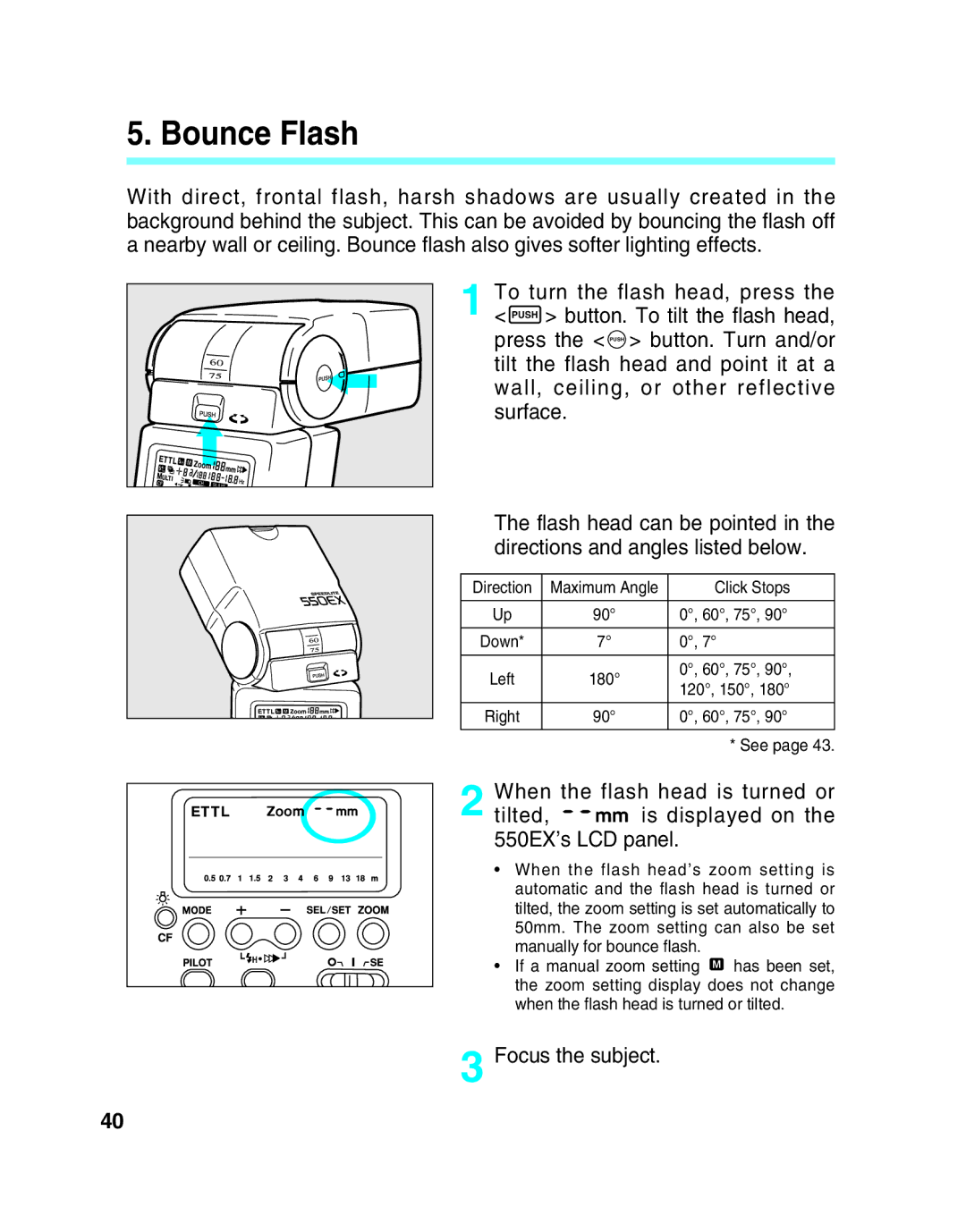
5. Bounce Flash
With direct, frontal flash, harsh shadows are usually created in the background behind the subject. This can be avoided by bouncing the flash off a nearby wall or ceiling. Bounce flash also gives softer lighting effects.
1 To turn the flash head, press the < PUSH > button. To tilt the flash head, press the < PUSH > button. Turn and/or tilt the flash head and point it at a wall, ceiling, or other reflective surface.
The flash head can be pointed in the directions and angles listed below.
Direction | Maximum Angle | Click Stops | |
|
|
| |
Up | 90° | 0°, 60°, 75°, 90° | |
|
|
| |
Down* | 7° | 0°, 7° | |
|
|
| |
Left | 180° | 0°, 60°, 75°, 90°, | |
120°, 150°, 180° | |||
|
| ||
|
|
| |
Right | 90° | 0°, 60°, 75°, 90° | |
|
|
|
* See page 43.
2 When the flash head is turned or
tilted, ![]()
![]()
![]() is displayed on the 550EX’s LCD panel.
is displayed on the 550EX’s LCD panel.
• When the flash head’s zoom setting is automatic and the flash head is turned or tilted, the zoom setting is set automatically to 50mm. The zoom setting can also be set manually for bounce flash.
• If a manual zoom setting ![]() has been set, the zoom setting display does not change when the flash head is turned or tilted.
has been set, the zoom setting display does not change when the flash head is turned or tilted.
3 Focus the subject.
40
